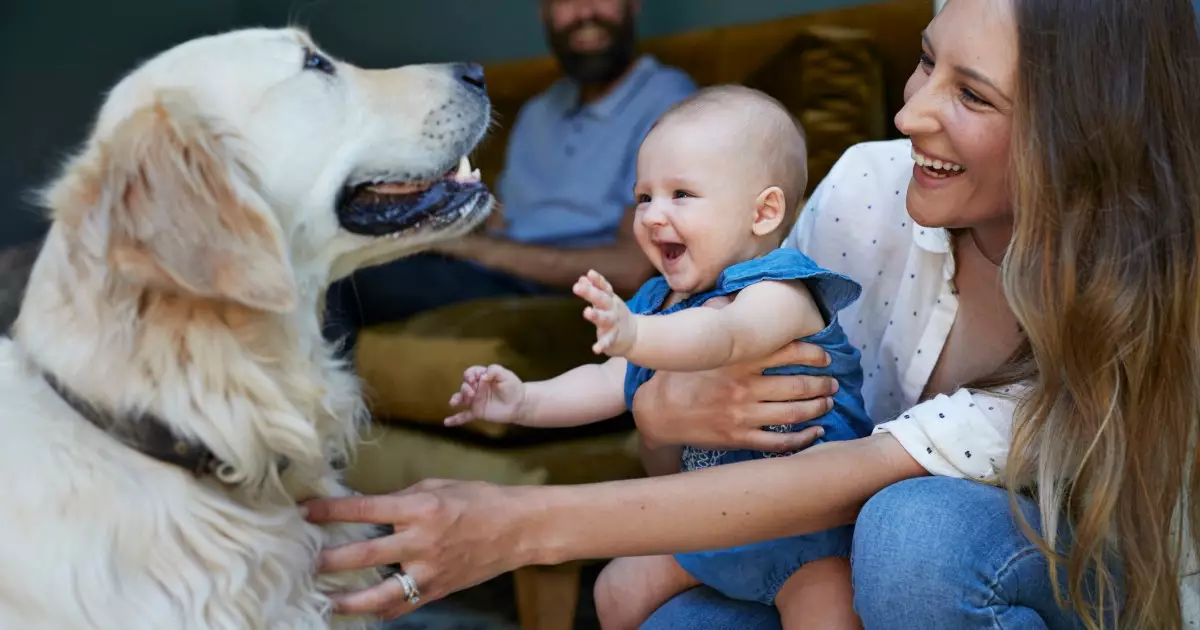In the early stages of a puppy’s life, often referred to as the critical developmental window, they become exceptionally receptive to their surrounding environment. This timeframe typically spans from a few weeks to around three to four months of age. During these weeks, the experiences and interactions they have with humans and other animals can significantly shape their behavior as adults. To raise a sociable and well-adjusted dog, prospective pet owners should focus on managing this formative period effectively. From choosing the right puppy to creating a nurturing environment, every step counts in molding a friendly canine companion.
When selecting a puppy, it is vital to consider the environment in which they were raised. Puppies that have been exposed to diverse human interactions while still with their littermates are generally more amenable to socialization. If you’re looking to bring a puppy into your home, prioritize those that show comfort around people during their early development. This initial exposure can lay the groundwork for a future of positive interactions. Understanding how a puppy has been socialized before joining your household can significantly influence their demeanor as they grow.
Young puppies may not be able to venture outdoors in public settings without facing health risks associated with diseases, but this should not hinder their socialization process. A practical solution is to host puppy parties right at home. Invite a variety of people over, particularly those who are calm, friendly, and knowledgeable about how to interact with dogs. Including men and children is crucial, as these groups often intimidate unfamiliar dogs. Even if your household lacks children, it is important to prepare your puppy for encounters with kids later on, as they can be common dog bite victims.
Incorporating experience into these gatherings is beneficial as well. Encourage visitors to engage with your puppy by offering treats, engaging in basic training, and providing plenty of affection. This will help your puppy cultivate a positive view of humans, easing future veterinary or grooming visits. Aim for frequent interactions to ensure your puppy’s comfort level rises as they adapt to various individuals.
While it would be wonderful to socialize your puppy every day during these formative weeks, that might not be feasible for many pet owners. Aim for at least three gatherings each week to keep lessons ongoing. Regular introductions to new faces create diverse experiences, making it easier for the puppy to adjust to various social situations outside the home. If hosting isn’t feasible, consider taking your pup out in a carrier to local cafés, markets, or parks. Even brief exposure to new environments and people is beneficial, provided that the experiences are positive.
Socialization with other puppies is essential for developing a variety of behaviors, including bite inhibition. During play, puppies learn valuable lessons about the appropriate amount of pressure to apply when using their mouths. A gentle yelp from a playmate signals that they have bitten too hard, leading them to modify their behavior. This instinctual feedback helps them understand the boundaries needed to maintain friendships with other dogs. Learning this vital aspect in a playful setting is often more effective than training adults can achieve.
As integral as social experiences are, teaching your puppy proper behavior through structured play is equally important. When your puppy mouths or nips at you, a simple reaction—like yelping or saying “Ouch!”—can serve as a powerful cue. This teaches them that biting results in the cessation of playtime. Reinforcing this lesson by ignoring your puppy for a brief moment will help drive home that biting is unacceptable. Staying consistent and patient in training will yield positive results.
Moreover, it’s critical to teach children how to interact with a puppy respectfully. Educating kids on how to react to biting or mouthing will further solidify the understanding that playing and gentle engagement are essential when interacting with dogs. Enforcing boundaries will ensure that the puppy recognizes the significance of interactions with children, fostering a friendly relationship.
By being diligent in socializing your puppy during their critical developmental window, you can help them grow into a well-adjusted, people-friendly dog. Understanding the significance of their early experiences, coupled with effective training techniques, will prepare your puppy for a lifetime of positive interactions with humans and other animals. A commitment to building a friendly demeanor in your canine companion not only enhances their life but also enriches the lives of those around them. Make socialization a fun, engaging priority, and watch as your puppy blossoms into the beloved friend you’ll cherish for years to come.

